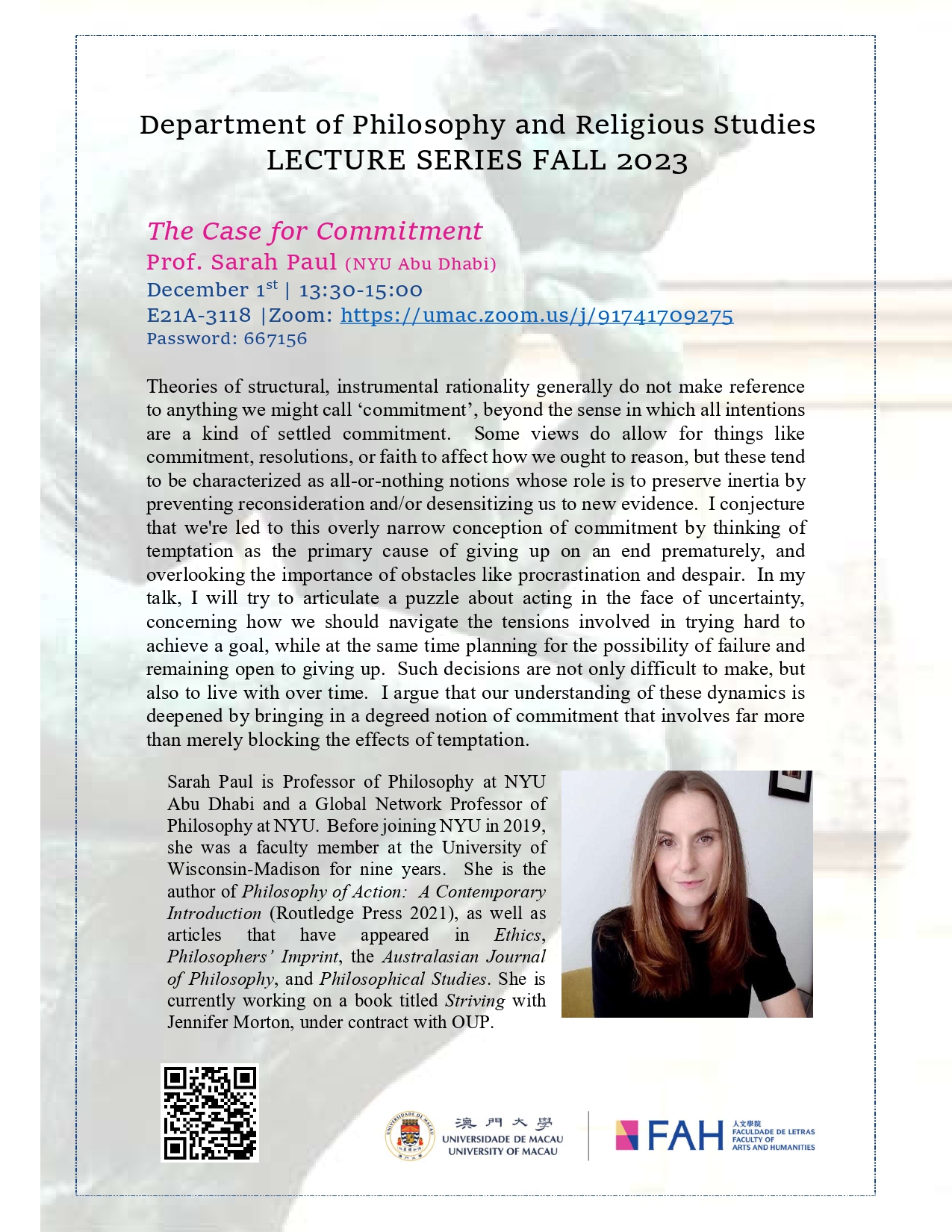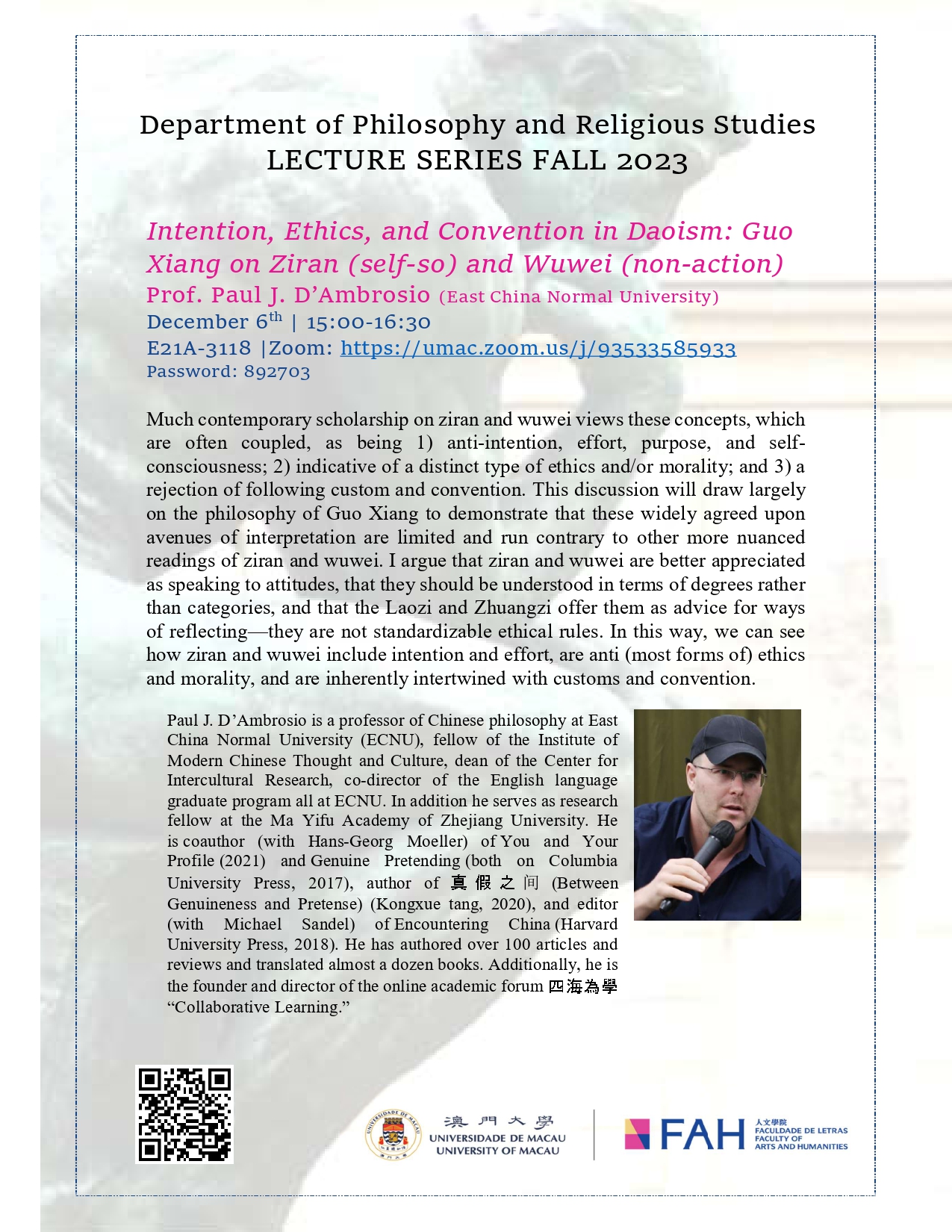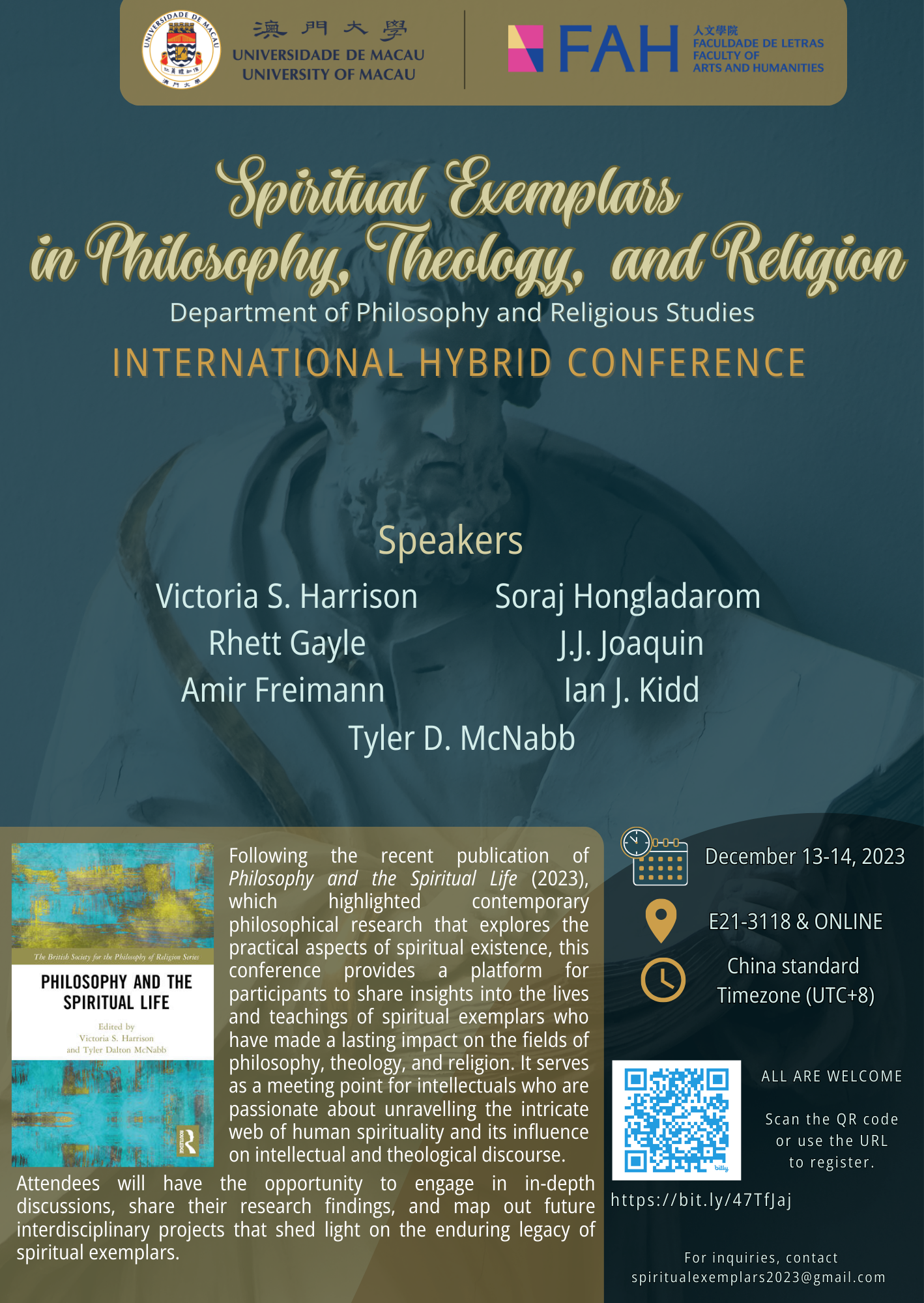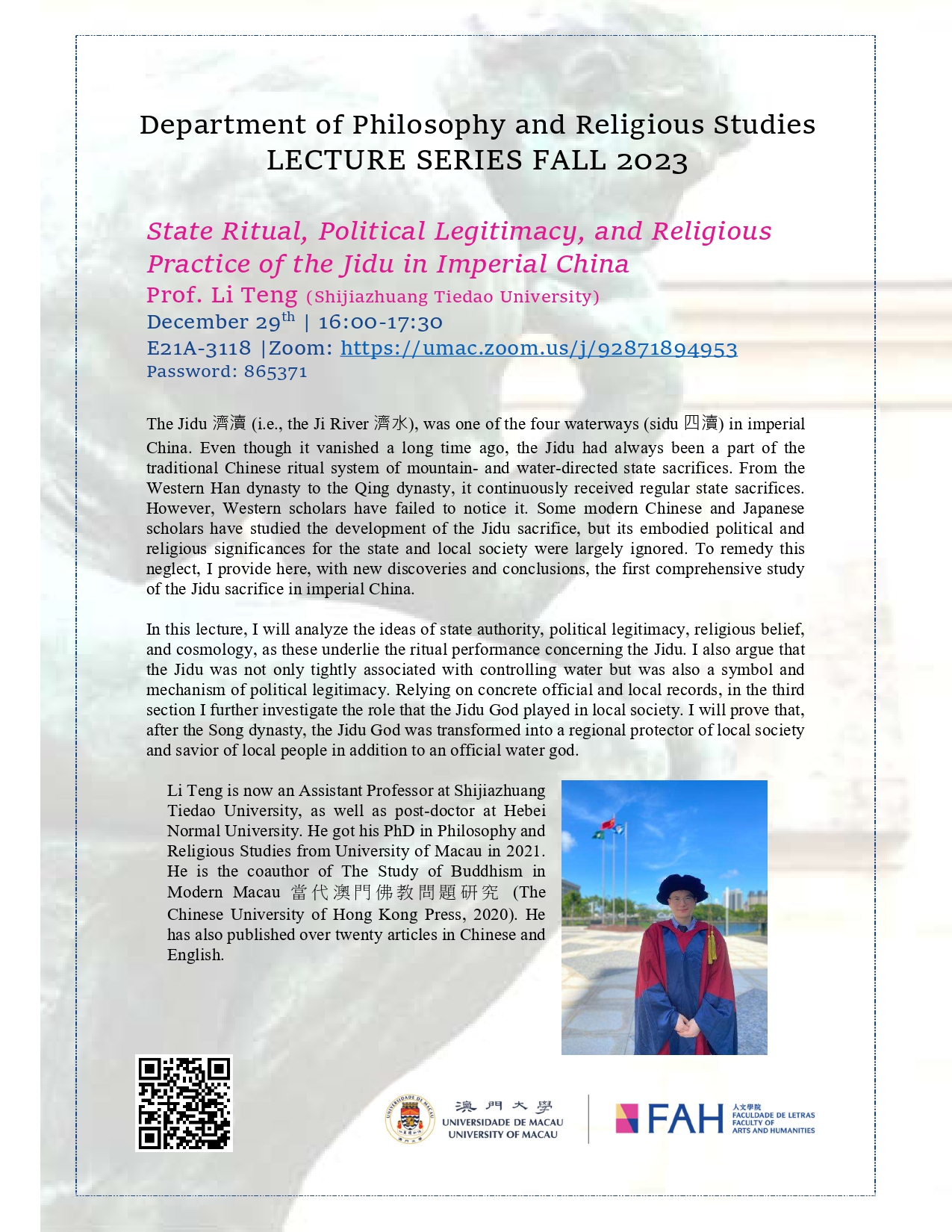Calendar of Events
M Mon
T Tue
W Wed
T Thu
F Fri
S Sat
S Sun
1 event,
FAH/DPHIL: The Mario Echano Prize for the Best Undergraduate Philosophy Essay
The Mario Echano Prize for the Best Undergraduate Philosophy Essay is awarded for excellence in philosophy. Students enrolled in the Department of Philosophy and Religious Studies undergraduate courses are eligible to enter an essay for the annual award. Students are invited to submit an academic essay written as an assignment in one of the Department of Philosophy and Religious Studies’ undergraduate courses this academic year (AY2023/2024). Essays of any length are acceptable. The organisers reserve the right not to award the prize if essays are not of sufficiently high standard. Please submit essays by e-mail with the subject line ‘Submission for the Mario Echano Prize’ to Maggie Wong at MaggieWong@um.edu.mo. Attach your essay to the message as a Microsoft Word document (other […]
2 events,
FAH/DPHIL Lecture Series – “The Case for Commitment” by Prof. Sarah Paul, NYU Abu Dhabi
FAH/DPHIL Lecture Series – “The Case for Commitment” by Prof. Sarah Paul, NYU Abu Dhabi
Zoom: https://umac.zoom.us/j/91741709275 Password: 667156 Abstract Theories of structural, instrumental rationality generally do not make reference to anything we might call ‘commitment’, beyond the sense in which all intentions are a kind of settled commitment. Some views do allow for things like commitment, resolutions, or faith to affect how we ought to reason, but these tend to be characterized as all-or-nothing notions whose role is to preserve inertia by preventing reconsideration and/or desensitizing us to new evidence. I conjecture that we're led to this overly narrow conception of commitment by thinking of temptation as the primary cause of giving up on an end prematurely, and overlooking the importance of obstacles like procrastination and despair. In my talk, I will try […]
2 events,
FAH/DPHIL Lecture Series – “Intention, Ethics, and Convention in Daoism: Guo Xiang on Ziran (self-so) and Wuwei (non-action)” by Prof. Paul J. D’Ambrosio, East China Normal University, China
FAH/DPHIL Lecture Series – “Intention, Ethics, and Convention in Daoism: Guo Xiang on Ziran (self-so) and Wuwei (non-action)” by Prof. Paul J. D’Ambrosio, East China Normal University, China
Zoom: https://umac.zoom.us/j/93533585933 Password: 892703 Abstract Much contemporary scholarship on ziran and wuwei views these concepts, which are often coupled, as being 1) anti-intention, effort, purpose, and self-consciousness; 2) indicative of a distinct type of ethics and/or morality; and 3) a rejection of following custom and convention. This discussion will draw largely on the philosophy of Guo Xiang to demonstrate that these widely agreed upon avenues of interpretation are limited and run contrary to other more nuanced readings of ziran and wuwei. I argue that ziran and wuwei are better appreciated as speaking to attitudes, that they should be understood in terms of degrees rather than categories, and that the Laozi and Zhuangzi offer them as advice for ways of […]
2 events,
FAH/DPHIL Lecture Series – “State Ritual, Political Legitimacy, and Religious Practice of the Jidu in Imperial China” by Prof. Li Teng, Shijiazhuang Tiedao University, China
FAH/DPHIL Lecture Series – “State Ritual, Political Legitimacy, and Religious Practice of the Jidu in Imperial China” by Prof. Li Teng, Shijiazhuang Tiedao University, China
Zoom: https://umac.zoom.us/j/92871894953 Password: 865371 Abstract The Jidu 濟瀆 (i.e., the Ji River 濟水), was one of the four waterways (sidu 四瀆) in imperial China. Even though it vanished a long time ago, the Jidu had always been a part of the traditional Chinese ritual system of mountain- and water-directed state sacrifices. From the Western Han dynasty to the Qing dynasty, it continuously received regular state sacrifices. However, Western scholars have failed to notice it. Some modern Chinese and Japanese scholars have studied the development of the Jidu sacrifice, but its embodied political and religious significances for the state and local society were largely ignored. To remedy this neglect, I provide here, with new discoveries and conclusions, the first comprehensive […]






